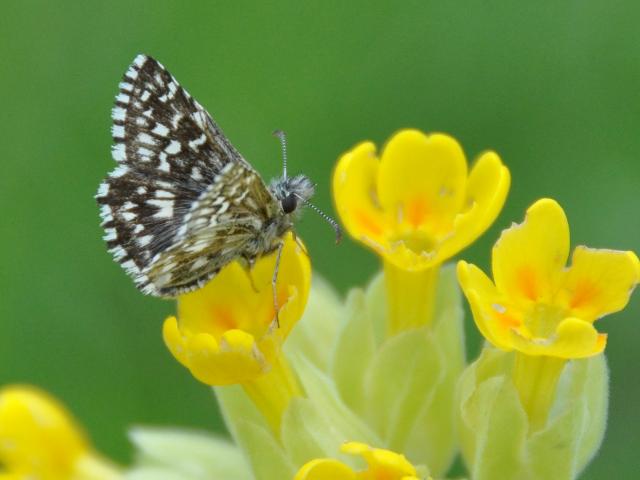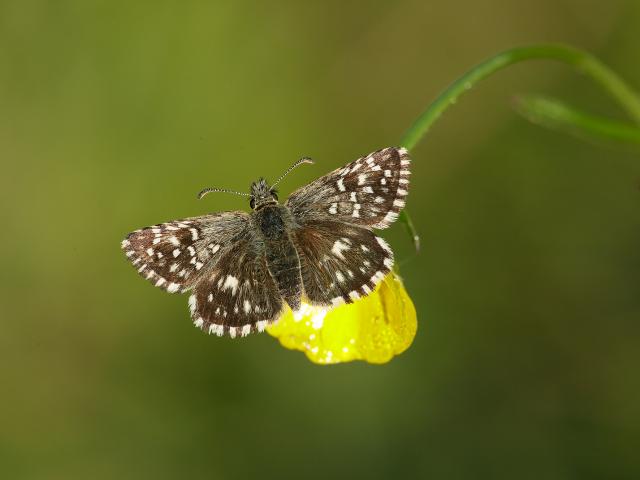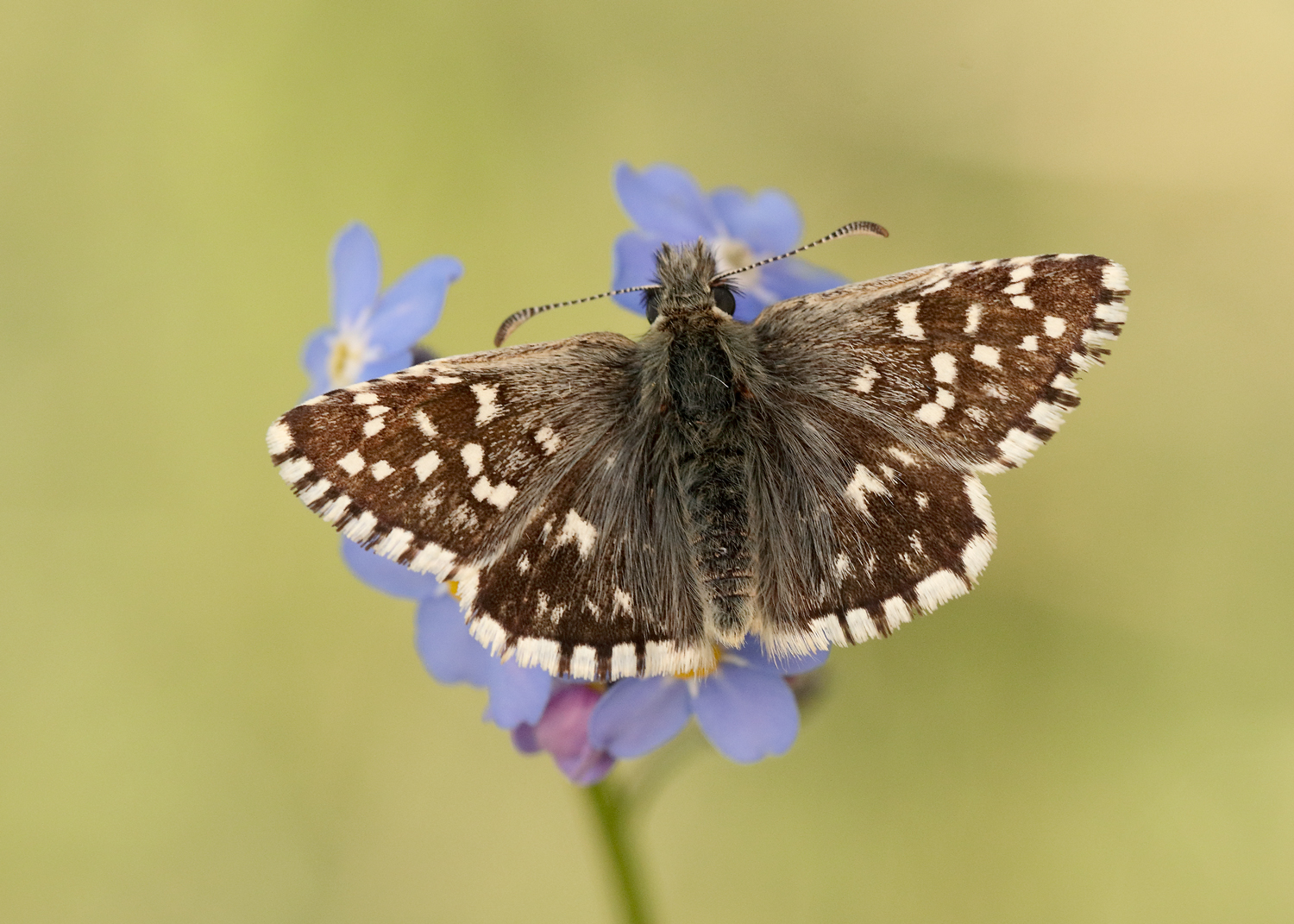Introducing Fiona Bell, PhD student at the University of Liverpool, who is currently researching the Grizzled Skipper butterfly and its response to a changing climate.
What is the subject of your PhD?
I’m interested in climate change and what happens when species can’t keep up with changes in their climate where they live (we call this the climate envelope). My study species is the Grizzled Skipper and should benefit from a trend of warming summers in the UK, but it has been in decline since the 1970s.
I want to understand why this is, how is this skipper performing across its UK range and are there any differences in habitat preferences? I’m trying to predict how it might move across the landscape under different scenarios of climate and land use.
How will your work help us to understand how species respond to climate change?
Many of our butterflies, like the Grizzled Skipper, rely on semi-natural, early successional habitats, so it’s important to understand how species respond to the interacting forces of climate and land-use change. Early successional butterfly specialists rely on these habitats because of the warmth provided by bare ground and sparse or short vegetation. In theory, with increasing temperatures, species could use habitat in later successional stages.
However, longer growing seasons may also result in taller/denser vegetation and the loss of important early successional habitats! It’s a complex system of interactions, so it’s really important to understand what the main drivers of decline are for threatened species in order to focus our resources and efforts to conserve them.

Any highlights of the PhD so far?
My first ever sighting of a Grizzled Skipper during the first field season in 2018. I spent a good half-hour pointing it out to any dog walkers and hikers who would listen!
I have also had the opportunity to be a PhD mentor for the British Ecological Society Summer School for undergraduates. It was an incredibly rewarding experience, being able to share my undergraduate and PhD experiences with other young, enthusiastic, aspiring ecologists and a powerful reminder of why I’m doing what I’m doing.
How has your previous experience and studies helped you with your PhD?
My dissertation on the Brown Argus butterfly during my degree was very useful for research skills, but internships and placements have given me some of the most relevant experiences in the field. During my degree, I was able to undertake a year-long research placement with the Wildfowl and Wetlands Trust at Slimbridge. It gave me practical skills in surveying, research planning, GIS, data and statistics, and a much better understanding of how conservation works.
A major stepping stone into the PhD was a Peoples Trust for Endangered Species (PTES) sponsored placement with Butterfly Conservation on the Lulworth Skipper with Rachel Jones. I met some really inspirational people in the field of Lepidoptera and conservation, and started getting into butterflies – skippers, specifically!
What’s so special about being a CASE student?
Having some extra funding for a full four years of research gives more flexibility and time to make the most of the PhD! In addition, a partnership within the industry with a built-in placement, which I’m doing now with Butterfly Conservation, is useful work experience outside of academia.
What next?
My PhD will soon be coming to an end and I’m hoping to hand in by the end of 2021. Beyond that, I’d like to explore career options in conservation and policy, but I’m hoping to get some more practical experience of on-the-ground conservation work beforehand.

Any advice to someone thinking of giving a PhD a go?
Make sure you’re passionate about the project subject; at times that passion is the only thing keeping you going! Try to get some experience in the field beforehand with placements and volunteering and always take advantage of opportunities that pop up – don’t be afraid of rejection!
Fiona’s PhD is supervised by Dr Jenny Hodgson and Prof Andy Fenton at the University of Liverpool, Prof Tom Brereton at Butterfly Conservation as well as Dr Marc Botham (UK Centre for Ecology and Hydrology). Her research is supported by NERC ACCE (Adapting to the Challenges of a Changing Environment) Doctoral Training Programme with an NPIF (National Productivity Investment Fund) CASE project in collaboration with Butterfly Conservation.


